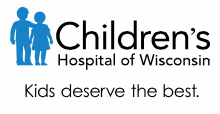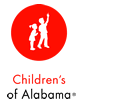Determining Predictors of Safe Discontinuation of Anti-TNF Treatment in JIA
| Status: | Completed |
|---|---|
| Conditions: | Arthritis |
| Therapuetic Areas: | Rheumatology |
| Healthy: | No |
| Age Range: | 4 - 20 |
| Updated: | 4/21/2016 |
| Start Date: | June 2009 |
| End Date: | October 2015 |
Improved Understanding of the Biology and Use of TNF Inhibition in Children With JIA
Polyarticular juvenile idiopathic arthritis (Poly JIA) is a form of juvenile arthritis,
which is a chronic disease affecting approximately 250,000 people younger than 16 years of
age. Poly JIA can be treated with anti-tumor necrosis factor (anti-TNF), a type of
medication that is often effective but also has some toxic side effects and is expensive.
Among those with poly JIA who are effectively treated with anti-TNF, some can remain healthy
off the medication, but some begin to feel the effects of their disease again once the
medication is stopped. This study will attempt to find whether certain tests or signs can
predict which people with poly JIA can safely stop their anti-TNF medications.
which is a chronic disease affecting approximately 250,000 people younger than 16 years of
age. Poly JIA can be treated with anti-tumor necrosis factor (anti-TNF), a type of
medication that is often effective but also has some toxic side effects and is expensive.
Among those with poly JIA who are effectively treated with anti-TNF, some can remain healthy
off the medication, but some begin to feel the effects of their disease again once the
medication is stopped. This study will attempt to find whether certain tests or signs can
predict which people with poly JIA can safely stop their anti-TNF medications.
Juvenile arthritis is a chronic disease affecting approximately 250,000 people younger than
16 years of age in the United States. Its symptoms include swelling, pain, and damage in the
joints. Juvenile arthritis can take four different forms, including poly JIA. Poly JIA
affects five or more joints, generally the smaller ones in wrists and fingers, causing
stiffness, joint damage, and sometimes eye inflammation in the children and adolescents who
suffer from it. Approximately 30% of people with juvenile arthritis have Poly JIA.
Treatment for juvenile arthritis involves drugs with escalating strength, depending on what
each individual responds to best. The first treatment option is non-steroidal
anti-inflammatory drugs (NSAIDs), such as Motrin IB and Aleve. The second treatment option
is methotrexate (MTX). About 30% to 50% of poly JIA patients are effectively treated with
MTX. Only if the patient does not respond to MTX is an anti-TNF drug used. Anti-TNF drugs
often result in profound disease improvement, but unfortunately, they can have toxic side
effects and are expensive.
For people whose poly JIA is inactive or minimally active on MTX or anti-TNF drugs, 50% to
80% experience a worsening of symptoms once they stop taking the medications. Most of these
flare-ups occur within 8 months of stopping treatment. Currently, there is no way to predict
which people with poly JIA can safely stop anti-TNF medications. This study will evaluate
two different factors—levels of certain calcium binding proteins and production of TNF—for
their use in predicting whether people with poly JIA are likely to experience a disease
flare-up once they stop anti-TNF treatment. The study will also look for genetic markers
that can serve as predictors of safe discontinuation of anti-TNF treatment.
Participation in this study will last up to 14 months and involve up to nine study visits.
Visits will be conducted at study entry and after 3, 6, 7, 8, 9, 10, 12, and 14 months. The
first three study visits will involve tests to determine baseline health indicators and to
ensure inactive disease. If, after 6 months, participants continue to have inactive disease,
they will be taken off their anti-TNF medications. For the remainder of the study, visits
will be used to monitor disease activity. If participants experience any clinically defined
disease flare-ups, they will immediately stop participating in the study and begin
additional treatment as prescribed by their health care providers. At all study visits,
participants will undergo a general physical examination, a joint examination,
questionnaires about how the disease affects their lives, and blood collection for research
samples.
16 years of age in the United States. Its symptoms include swelling, pain, and damage in the
joints. Juvenile arthritis can take four different forms, including poly JIA. Poly JIA
affects five or more joints, generally the smaller ones in wrists and fingers, causing
stiffness, joint damage, and sometimes eye inflammation in the children and adolescents who
suffer from it. Approximately 30% of people with juvenile arthritis have Poly JIA.
Treatment for juvenile arthritis involves drugs with escalating strength, depending on what
each individual responds to best. The first treatment option is non-steroidal
anti-inflammatory drugs (NSAIDs), such as Motrin IB and Aleve. The second treatment option
is methotrexate (MTX). About 30% to 50% of poly JIA patients are effectively treated with
MTX. Only if the patient does not respond to MTX is an anti-TNF drug used. Anti-TNF drugs
often result in profound disease improvement, but unfortunately, they can have toxic side
effects and are expensive.
For people whose poly JIA is inactive or minimally active on MTX or anti-TNF drugs, 50% to
80% experience a worsening of symptoms once they stop taking the medications. Most of these
flare-ups occur within 8 months of stopping treatment. Currently, there is no way to predict
which people with poly JIA can safely stop anti-TNF medications. This study will evaluate
two different factors—levels of certain calcium binding proteins and production of TNF—for
their use in predicting whether people with poly JIA are likely to experience a disease
flare-up once they stop anti-TNF treatment. The study will also look for genetic markers
that can serve as predictors of safe discontinuation of anti-TNF treatment.
Participation in this study will last up to 14 months and involve up to nine study visits.
Visits will be conducted at study entry and after 3, 6, 7, 8, 9, 10, 12, and 14 months. The
first three study visits will involve tests to determine baseline health indicators and to
ensure inactive disease. If, after 6 months, participants continue to have inactive disease,
they will be taken off their anti-TNF medications. For the remainder of the study, visits
will be used to monitor disease activity. If participants experience any clinically defined
disease flare-ups, they will immediately stop participating in the study and begin
additional treatment as prescribed by their health care providers. At all study visits,
participants will undergo a general physical examination, a joint examination,
questionnaires about how the disease affects their lives, and blood collection for research
samples.
Inclusion Criteria:
- Diagnosis of polyarticular JIA (rheumatoid factor + and rheumatoid factor -) or
extended oligo JIA by the International League of Associations for Rheumatology
(ILAR) criteria
- Receiving therapy with one of the currently available anti-TNF biologics: infliximab,
etanercept, or adalimumab
- Absence of any of the FDA label exclusions for anti-TNF therapy
- Receiving slit lamp exams performed at regular intervals in accordance with the
published American Academy of Pediatrics guidelines
- Baseline hemoglobin >10 g/dl
- Absence of joints with active arthritis, using the American College of Rheumatology
(ACR) definition of "active joint"
- Absence of fever, rash, serositis, splenomegaly, or generalized lymphadenopathy
attributable to JIA
- Absence of active uveitis, as per an exam by an ophthalmologist
- Normal erythrocyte sedimentation rate (ESR) or C-reactive protein (CRP); if above
normal range, must be not attributable to JIA
- Physician's global assessment of disease activity indicating absence of disease
activity, defined as the best score obtainable on the scale used
- Duration of morning stiffness less than or equal to 15 minutes
Exclusion Criteria:
- Diagnosis of a type of JIA other than polyarticular JIA
- Diagnosis of another inflammatory disease that may affect laboratory results or
ability to discontinue anti-TNF biologic therapy
- Concurrent treatment with any biologic agent other than infliximab, etanercept, or
adalimumab
- previous treatment with rituximab
- concurrent treatment for JIA with corticosteroids >0.2 mg/kg/day OR >10 mg/day
We found this trial at
16
sites
9000 W Wisconsin Ave #270
Milwaukee, Wisconsin 53226
Milwaukee, Wisconsin 53226
(414) 266-2000

Children's Hospital of Wisconsin Nothing matters more than our children. At Children's Hospital of Wisconsin,...
Click here to add this to my saved trials
Emory University School of Medicine Emory University School of Medicine has 2,359 full- and part-time...
Click here to add this to my saved trials
Children's Hospital of Alabama Children
Click here to add this to my saved trials
3333 Burnet Avenue # Mlc3008
Cincinnati, Ohio 45229
Cincinnati, Ohio 45229
1-513-636-4200

Cincinnati Children's Hospital Medical Center Patients and families from across the region and around the...
Click here to add this to my saved trials
Connecticut Children's Medical Center Connecticut Children’s Medical Center is a nationally recognized, 187-bed not-for-profit children’s...
Click here to add this to my saved trials
Click here to add this to my saved trials
171 Ashley Avenue
Charleston, South Carolina 29425
Charleston, South Carolina 29425
843-792-1414

Medical University of South Carolina The Medical University of South Carolina (MUSC) has grown from...
Click here to add this to my saved trials
Click here to add this to my saved trials
Cleveland Clinic Foundation The Cleveland Clinic (formally known as The Cleveland Clinic Foundation) is a...
Click here to add this to my saved trials
Click here to add this to my saved trials
Click here to add this to my saved trials
Click here to add this to my saved trials
Click here to add this to my saved trials
Phoenix Children's Hospital Phoenix Children's Hospital has provided hope, healing, and the best healthcare for...
Click here to add this to my saved trials
Click here to add this to my saved trials
111 Michigan Ave NW
Washington, District of Columbia
Washington, District of Columbia
(202) 476-5000

Childrens National Medical Center As the nation’s children’s hospital, the mission of Children’s National Medical...
Click here to add this to my saved trials




